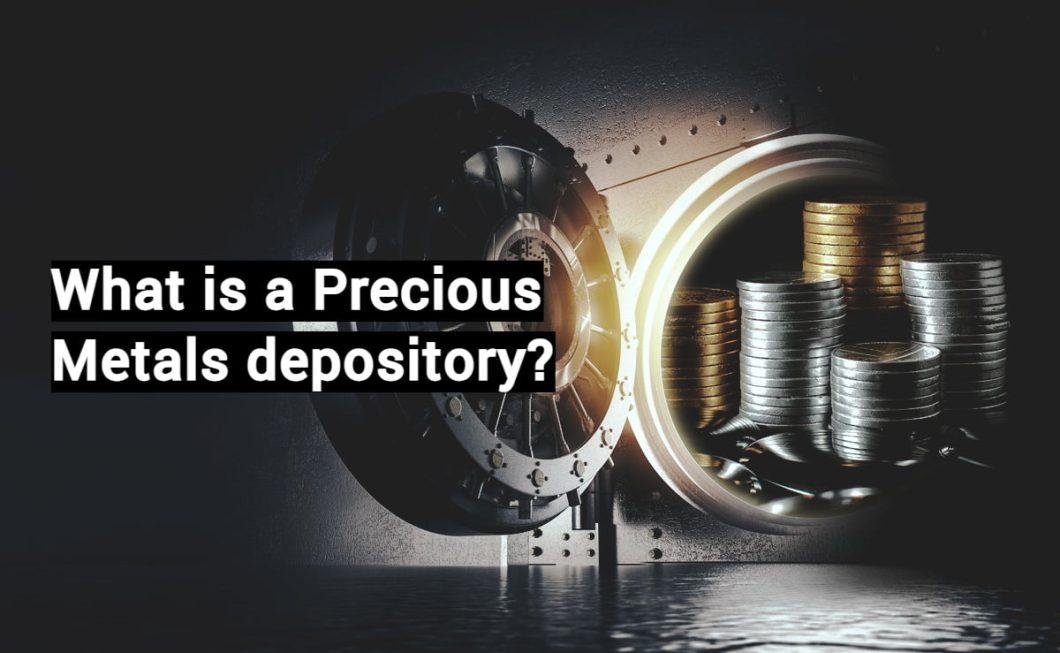
If you’re interested in precious metals as an investment or have ever thought about doing so, you may be wondering where individuals are keeping their actual gold and silver. For those who hold precious metals, a depository may be a helpful resource. In this article, we will define a precious metals depository and go over some of the benefits you may get from using it.
How Do Precious Metals Depositories Work?
A depository for precious metals works in a manner identical to an upscale vault. There are some easy procedures to take in order to store your gold, silver, or other precious metals within a depository:
- Start an account: Storing precious metals within a depository outside of an IRA is to create an account with a precious metals depository that suits your needs and preferences. Do some investigating to discover a depository that fits your needs. If your custodian has recommended a depository that you can use for your IRA, you won’t need to undertake this process.
- Store valuable metals: A deposit listing the metals to be kept in the depository must be filled out in order to deposit bullion not included in an IRA. Those who own bullion have the option of storing it themselves or having newly acquired precious metals sent straight to the depository. Clients who have an IRA in precious metals are exempt from this requirement.
- Security Protocol: Additionally, for your peace of mind, precious metals depositories carry insurance in case of losses, and state-of-the-art security is used to keep your bullion safe and secure. Consumer storage costs will cover the cost of these amenities. IRS-approved precious metals depository follows the stringent regulations established by the IRS.
Does the IRS Regulate a Depository?
The Internal Revenue Service (IRS) mandates that investors store precious metals at an IRS-approved depository in order to safeguard their IRA holdings of gold and silver, as well as additional precious metals. Every IRS-approved precious metals depository needs to comply with stringent regulations established by the IRS.
If you are interested in finding an IRS-approved depository, then please download your free gold IRA kit from Augusta Precious Metals by clicking here; once you receive your free guide, an agent will reach out to you to answer any further questions regarding your wants and needs.
What Depositories Are Approved By the IRS?
U.S. government-authorized depositories are the only ones allowed to store precious metals for IRAs. In order to assist their clients in finding a secure storage option, Augusta Precious Metals collaborates with several of the seven depositories that the IRS presently permits.

At the Delaware Depository, thanks to their policy insurance and the accumulated 200 years of expertise of the deposit’s managers in precious metals management. The policy provides coverage of $1 billion for the depository’s managed assets and a hundred thousand dollars for each package.
Benefits of Precious Metals Depositories
Precious metals must be kept in a secure environment at all times. There are a number of dangers that might come from keeping your gold IRA assets at home, such as the fact that there are many regulations that you must adhere to the letter and the fact that there isn’t much protection to keep your valuable metals secure. Among the many benefits of precious metals vaults are the following:
Insurance Coverage: One of the benefits of a suitable depository is that services provide insurance policies that protect your precious metals from financial loss in the case of a covered peril, such as a natural catastrophe, robbery, or other catastrophic incident.
Security Methods: Robust security procedures are in place to safeguard assets held in an IRS-approved depository, which is a significant reason to keep precious metals there. Most modern precious metals depositories include state-of-the-art monitoring systems and access restrictions.
Fully Regulated: Account customers may rest easy knowing that their deposited assets are being handled lawfully since IRS-approved precious metals depositories are required to adhere to regulatory criteria that promote transparency and accountability.
Any Drawbacks of Precious Metals Depositories?
There are certainly a number of things to think about before choosing a precious metals depository to store your assets, despite the many benefits that precious metals owners enjoy, including insurance and stringent security. All depositories impose a storage fee on customers with accounts to secure their funds.
Maintenance and storage costs are one of the initial things to think about. While there are expenses associated with forming a Gold IRA or any other precious metals IRA, there are also particular kinds of precious metals that may be stored inside the IRA, and they must fulfil strict fineness standards set by the IRS.
How Are Precious Metals Stored at a Depository?
You usually have the choice of “allocated” or “segregated” storage once your precious metals get catalogued.

Allocated Storage: When you keep your bullion with another client’s bullion, it is called allocated storage. Allocated storage is analogous to that of a financial institution. You may expect to get the same kind of bullion you entered as you withdraw out of a depository, but it may be different from what you placed.
Segregated Storage: When you store your bullion in a segregated storage, it has a specific area where you can roam free. You may be sure that the vault or container containing your precious metals bullion will remain completely yours when you open a segregated account.
How to Find a Precious Metals Depository?
To provide you with suggestions, Augusta Precious Metals has partnered with the top precious metals depository and custodian. When you’re trying to decide on a depository, keep these things in mind:
- Security: A depository’s primary security measure should be state-of-the-art security measures such as alarms, vaults, and access restrictions.
- Insurance: Protect your precious metals from theft and damage by ensuring that your precious metals has insurance.
- Features: A good precious metals vault will also control the humidity and temperature to keep your metals from rusting and other forms of corrosion.
- Audits: Finding a depository that goes through regular audits is an excellent way to make sure that they keep quality standards high since they evaluate it often.
- Location: One consideration while selecting a depository can be how close it is to one’s place of residence or place of work.

